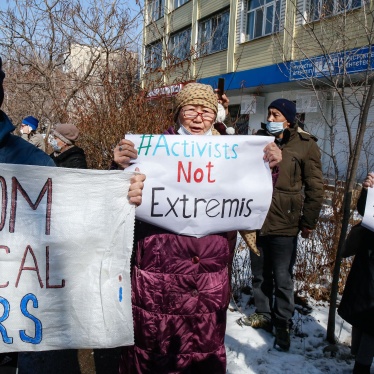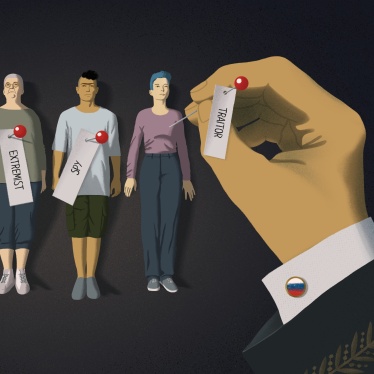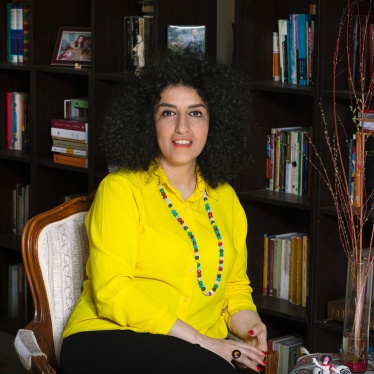(Almaty) - The Kazakh government has seven months to improve its human rights record to meet the standards of the Organization for Security and Co-operation in Europe (OSCE) before it takes over the institution's chairmanship, Human Rights Watch said today.
Human Rights Watch's executive director, Kenneth Roth, is in Kazakhstan to urge its government to make lasting improvements in its human rights record, in line with the prominent role that the OSCE chairmanship entails.
Kazakhstan will assume the OSCE chairmanship in January 2010. Ensuring that participating states respect human rights is a core function of the OSCE.
"The OSCE chairmanship places the Kazakh government's human rights record under intense scrutiny," said Roth. "Ultimately it will be up to the government whether it will be judged as having lived up to its commitments or as having fallen embarrassingly short."
In a report published last month, Human Rights Watch said that Kazakhstan had made some modest human rights improvements in the past several months, but needed to do more to respect key rights, including freedom of expression, religion, and assembly.
In 2007, the OSCE agreed to give Kazakhstan the chairmanship in 2010, which will make it the first country of the Commonwealth of Independent States to lead the organization. When the OSCE made the decision, the Kazakh government pledged, among other things, to reform a number of restrictive laws pertaining to elections and the media.
"The government has been willing to discuss its human rights record with us," said Roth. "But with the clock ticking toward the OSCE chairmanship, no one appears to be taking responsibility for accelerating the necessary improvements."
In a positive move, in February 2009, Kazakhstan's Constitutional Council ruled that a proposed restrictive religion law was unconstitutional. The council found that the law did "not ensure equality between religious communities" - specifically "religions previously not known in the Republic of Kazakhstan" - and that many provisions were vague. But concern remains that the government might again try to adopt such a law as soon as the OSCE chairmanship ends.
Human Rights Watch said new amendments to the law on mass media, signed by President Nursultan Nazarbaev in February, are a step in the right direction, but leave unaddressed broader problems with media freedoms in Kazakhstan, such as the domination by government loyalists of broadcast media outlets, harassment of independent journalists, and the country's criminal penalties for libel.
Moreover, a bill under consideration in Kazakhstan's parliament would restrict freedom of expression on the internet and introduce new restrictions on other mass media. Human Rights Watch said the overall effect of the proposed amendments would be to nullify the very modest improvements brought about by the changes Nazarbaev approved.
Human Rights Watch also called on the government to liberalize legislation on public assemblies, which remain tightly controlled in Kazakhstan.
Roth urged the government of Kazakhstan to follow up on initial reforms by:
- Placing a moratorium on criminal libel cases, taking all necessary steps to abolishthe relevant articles in the Criminal Code relating to criminal libel, and establishing a cap on civil defamation awards;
- Stopping any attempt to filter internet content or block access to websites, and refraining from adding further unwarranted restrictions to the mass media law;
- Abolishing unnecessary restrictions on locations where demonstrations can take place;
- Registering the opposition political party Alga! and overall ensuring that political parties are not arbitrarily denied registration; and
- Inviting the United Nations special rapporteur on freedom of religion or belief to visit and review the state of religious freedom in the country.








